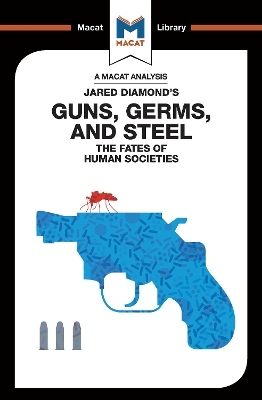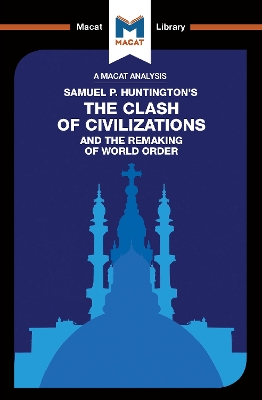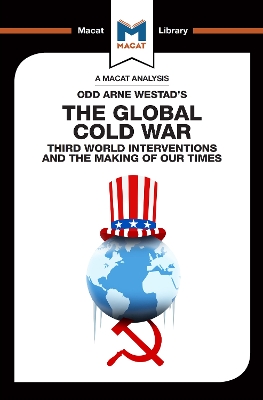The Macat Library
27 total works
In his 1997 work Guns, Germs and Steel, Jared Diamond marshals evidence from five continents and across 13,000 years of human history in an attempt to answer the question of why that history unfolded so differently in various parts of the globe. His results offer new explanations for why the unequal divisions of power and wealth so familiar to us today came into existence - and have persisted.
Balancing materials drawn from a vast range of sources, addressing core problems that have fascinated historians, anthropologists, biologists and geographers alike - and blending his analysis to create a compelling narrative that became an international best-seller and reached a broad general market - required a mastery of the critical thinking skill of reasoning that few other scholars can rival. Diamond's reasoning skills allow him to persuade his readers of the value of his interdisciplinary approach and produce well-structured arguments that keep them turning pages even as he refocuses his analysis from one disparate example to another.
Diamond adds to that a spectacular ability to grasp the meaning of the available evidence produced by scholars in those widely different disciplines - making Guns, Germs and Steel equally valuable as an exercise in high-level interpretation.
The end of the Cold War, which occurred early in the 1990s, brought joy and freedom to millions. But it posed a difficult question to the world's governments and to the academics who studied them: how would world order be remade in an age no longer dominated by the competing ideologies of capitalism and communism? Samuel P. Huntington was one of the many political scientists who responded to this challenge by conceiving works that attempted to predict the ways in which conflict might play out in the 21st century, and in The Clash of Civilizations he suggested that a new kind of conflict, one centred on cultural identity, would become the new focus of international relations. Huntington's theories, greeted with scepticism when his book first appeared in the 1990s, acquired new resonance after 9/11.
The Clash of Civilizations is now one of the most widely-set and read works of political theory in US universities; Huntington's theories have also had a measurable impact on American policy. In large part, this is a product of his problem-solving skills. Clash is a monument to its author's ability to generate and evaluate alternative possibilities and to make sound decisions between them. Huntington's view, that international politics after the Cold War would be neither peaceful, nor liberal, nor cooperative, ran counter to the predictions of almost all of his peers, yet his position - the product of an unusual ability to redefine an issue so as to see it in new ways - has been largely vindicated by events ever since.
An Analysis of Odd Arne Westad's The Global Cold War
by Patrick Glenn and Bryan Gibson
For those who lived through the Cold War period, and for many of the historians who study it, it seemed self-evident that the critical incidents that determined its course took place in the northern hemisphere, specifically in the face-off between NATO and the Warsaw Pact in Europe. In this view, the Berlin Wall mattered more than the Ho Chi Minh Trail, and the Soviet intervention in Hungary was vastly more significant than Soviet intervention in Korea. It was only the fine balance of power in the northern theatre that redirected the attentions of the USA and the USSR elsewhere, and resulted in outbreaks of proxy warfare elsewhere in the globe - in Korea, in Vietnam and in Africa.
Odd Arne Westad's triumph is to look at the history of these times through the other end of the telescope - to reconceptualize the Cold War as something that fundamentally happened in the Third World, not the First. The thesis he presents in The Global Cold War is highly creative. It upends much conventional wisdom and points out that the determining factor in the struggle was not geopolitics, but ideology - an ideology, moreover, that was heavily flavoured by elements of colonialist thinking that ought to have been alien to the mindsets of two avowedly anti-colonial superpowers. Westad's work is a fine example of the creative thinking skill of coming up with new connections and fresh solutions; it also never shies away from generating new hypotheses or redefining issues in order to see them in new ways.



